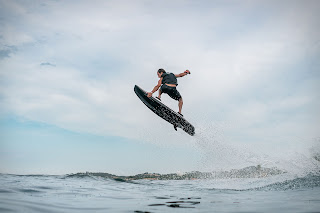New Device to Rescue Astronauts
NASA - ESA Collaboration
Lunar and Extraplanetary Rescue System for Fallen Astronauts
It's called LESA, the Lunar Evacuation System Assembly and it is the combined invention of NASA and the European Space Agency. The technology enables a single astronaut to rescue a fallen comrade on the moon or on another planet and bring them back to the safety of a pressurized space station. It's a world first and of great necessity. As of the moment, there is no way a single astronaut could carry a fallen astronaut to safety without technological assistance because of their spacesuits and gravity.
NASA and ESA Tests
NASA and ESA have tested the tech at the 10 m deep pool at ESA's Satellite Center in Cologne, Germany. They used the pool to simulate lunar gravity and the tests are going well. The team says LESA is like a golf caddy. Its lift mechanism and stretchers can be operated by a single astronaut. NASA and ESA say this rescue technology is essential for lunar and other extraplanetary exploration to rescue an astronaut in the event of a medical emergency. The space technology to save astronauts' lives continues under development.
 |
| Source: ESA Equipment Test in Cologne, Germany |
Lunar and Extraplanetary Rescue System for Fallen Astronauts
It's called LESA, the Lunar Evacuation System Assembly and it is the combined invention of NASA and the European Space Agency. The technology enables a single astronaut to rescue a fallen comrade on the moon or on another planet and bring them back to the safety of a pressurized space station. It's a world first and of great necessity. As of the moment, there is no way a single astronaut could carry a fallen astronaut to safety without technological assistance because of their spacesuits and gravity.
NASA and ESA Tests
NASA and ESA have tested the tech at the 10 m deep pool at ESA's Satellite Center in Cologne, Germany. They used the pool to simulate lunar gravity and the tests are going well. The team says LESA is like a golf caddy. Its lift mechanism and stretchers can be operated by a single astronaut. NASA and ESA say this rescue technology is essential for lunar and other extraplanetary exploration to rescue an astronaut in the event of a medical emergency. The space technology to save astronauts' lives continues under development.
%20(1)%20(1)%20(3)%20(2)%20(2).jpg)


Comments
Post a Comment